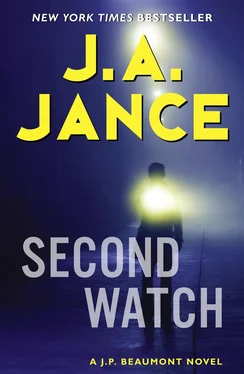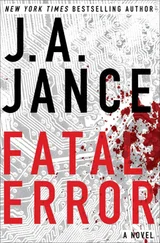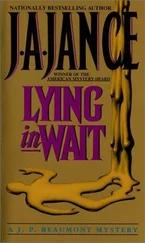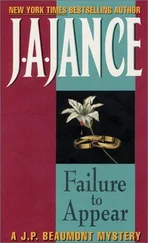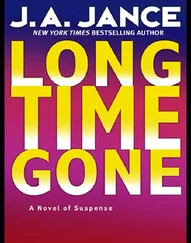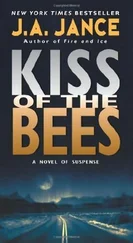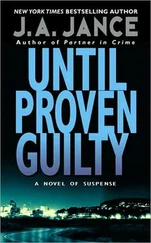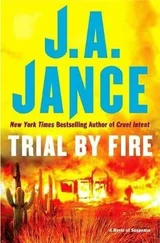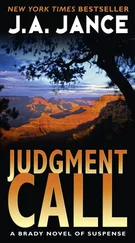Mac’s wife, Melody, stayed home with the kids. From what I could tell from his one-sided version of events, the two of them constantly squabbled over finances. No matter how much overtime Mac worked, there was never enough money to go around. Melody wanted to go to work. Mac was adamantly opposed. Melody was reading too many books and, according to him, was in danger of turning into one of those scary bra-burning feminists.
From my point of view, letting Melody go out and get a job seemed like a reasonable solution. It’s what Karen and I had decided to do. She had been hired as a secretary at the Weyerhaeuser corporate headquarters, but we had both regarded her work there as just a job—as a temporary measure rather than a career—because our ultimate goal, once we finally got around to having kids, had been for Karen to stay home and look after them, and that’s what she was doing now.
In that regard, our story was different from Mac and Melody’s. The two of us had met in college, where I had snagged Karen away from the clutches of one of my fraternity brothers, a pompous ass named Maxwell Cole. Due to the advent of the pill, we did not get “in trouble” before we got married, but it wasn’t for lack of trying. My draft number came up at about the same time I graduated from the University of Washington, so I joined up before I was drafted. Karen was willing to get married before I shipped out; I insisted on waiting.
Once I came home, also to the by-then-routine “baby-killer” chorus, Karen and I did get married. I went to work at Seattle PD, while Karen kept the job at Weyerhaeuser she had gotten while I was in the service. It’s possible that Karen had a few bra-burning tendencies of her own, but it didn’t seem like that big an issue for either one of us at the time, not back when we were dating. For one thing, we were totally focused on doing things the “right way.” We put off having kids long enough to buy the house on Lake Tapps. Now that Scott had just turned one, we were both grateful to be settled.
Yes, I admit that driving from Lake Tapps to downtown Seattle is a long commute. That’s one of the reasons I drove a VW bug, for fuel economy, but as far as this former city kid is concerned, being able to raise our kids in the country rather than the city makes the drive and the effort worthwhile.
I was raised in Seattle’s Ballard neighborhood, where I was one of the few kids around with a single mother. My mom supported us by working at home as a seamstress. Growing up in poverty was one of the reasons I was determined to raise my own kids with two parents and a certain amount of financial security. I had my eye on being promoted to investigations, preferably Homicide. I had taken the exam, but so far there weren’t any openings.
Karen and I had both had lofty and naive ideas about how her stay-at-home life would work. However, with one baby still in diapers and with another on the way, reality had set in in a very big way. From Karen’s point of view, her new noncareer path wasn’t at all what it was cracked up to be. She was bored to tears and had begun to drop hints about being sold a bill of goods. The long commute meant that my workdays were longer, too. She wanted something more in her life than all Scotty, all the time. She also wanted me to think about some other kind of job where there wouldn’t be shift work. She wanted a job for me that would allow us to establish a more regular schedule, one where I could be home on weekends like other people. The big problem for me with that idea was that I loved what I did.
So that’s how me and Mac’s second-watch shift was going that Sunday afternoon. We had met up at Bob Murray’s Doghouse for a hearty Sunday brunch that consisted of steak and eggs, despite the warning on the menu specifying that the tenderness of the Doghouse’s notoriously cheap steaks was “not guaranteed.” I believe it’s possible—make that likely—that we both had some hair of the dog. Mac had a preshift Bloody Mary and I had a McNaughton’s and water in advance of heading into the cop shop in downtown Seattle.
Once we checked our Plymouth Fury out of the motor pool, Mac did the driving, as usual. When we were together, I was more than happy to relinquish the wheel. My solitary commutes back and forth from Lake Tapps gave me plenty of “drive time.” During Mac’s and my countless hours together in cars, we did more talking than anything else.
Mac and I were both Vietnam vets, but we did not talk about the war. What we had seen and done there was still too raw and hurtful to talk about, and what happened to us after we came back home was even more so. As a result we steadfastly avoided any discussion that might take us too close to that painful reality. Instead, we spent lots of time talking about the prospects for the newest baseball team in town, the second coming of the Seattle Rainiers, to have a winning season.
Mac was still provoked that the “old” Seattle Rainiers, transformed into the Seattle Pilots, had joined the American League and boogied off to Milwaukee. I didn’t have a strong feeling about any of it, so I just sat back and let Mac rant. Finished with that, he went on to a discussion of his son, Rolly, short for Roland. For Mac it was only a tiny step from discussing Seattle’s pro baseball team to his son’s future baseball prospects, even though Rolly was seven and doing his first season of T-ball, complicated by the unbelievable fact that Melody had signed up to be the coach of Rolly’s team.
My eyes must have glazed over about then. At our house, Karen and I were still up to our armpits in diapers. By the way, when I say the word “we” in regard to diapers, I mean it. I did my share of diaper changing. From where I stood in the process of child rearing, thinking about T-ball or even Little League seemed to be in the very distant future.
What I really wanted right about then was a cigarette break. Mac had quit smoking months earlier. Out of deference to him, I didn’t smoke in the patrol car, but at times I really wanted to.
It must have been close to four thirty when a call came in over our two-way radio. Two kids had been meandering around the railroad yard at the base of Magnolia Bluff. Somewhere near the bluff they had found what they thought was an empty oil drum. When they pried off the top, they claimed, they had discovered a dead body inside. I told Dispatch that we were on our way, but Mac didn’t exactly put the pedal to the metal.
“I’ll bet dollars to doughnuts this is somebody’s idea of a great April Fool’s joke,” he said. “Wanna bet?”
“No bet,” I agreed. “Sounds suspicious to me.”
We went straight there, not with lights and sirens, but without stopping for coffee along the way, either. We didn’t call the medical examiner. We didn’t call for the Homicide squad or notify the crime lab because we thought it was a joke. Except it turned out it wasn’t a joke at all.
We located the two kids, carrot-topped, freckle-faced twin brothers Frankie and Donnie Dodd, waiting next to a pay phone at the Elliott Bay Marina where they had called 911. They looked to be eleven or twelve years old. The fact that they were both still a little green around the gills made me begin to wonder if maybe Mac and I were wrong about the possibility of this being an April Fool’s joke.
“You won’t tell our mom, will you?” the kid named Donnie asked warily. “We’re not supposed to be down by the tracks. She’ll kill us if she finds out.”
“Where do you live?” I asked.
“On Twenty-third West,” he said, pointing to the top of the bluff. “Up on Magnolia.”
“And where does your mother think the two of you are?” I asked.
Frankie, who may have been the ringleader, made a face at his brother, warning Donnie not to answer, but he did anyway.
Читать дальше
